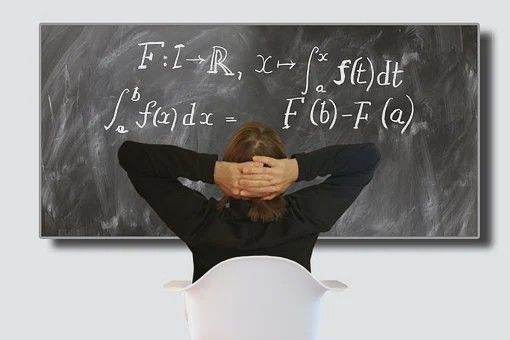机器学习数学
重点(Top highlight)
In this article, I have shared a 3-month plan to learn mathematics for machine learning. As we know, almost all machine learning algorithms make use of concepts of Linear Algebra, Calculus, Probability & Statistics, etc. Some advanced algorithms and techniques also make use of subjects such as Measure Theory(a superset of probability theory), convex and non-convex optimization, and much more. To understand the machine learning algorithms and conduct research in machine learning and its related fields, the knowledge of mathematics becomes a requirement.
在本文中,我分享了一个为期3个月的计划,学习用于机器学习的数学。 众所周知,几乎所有的机器学习算法都使用线性代数,微积分,概率和统计等概念。一些先进的算法和技术还利用诸如测度论(概率论的超集),凸和非-凸优化,还有更多。 为了理解机器学习算法并在机器学习及其相关领域进行研究,必须具备数学知识。
The plan that I have shared in this article can be used to prepare for data science interviews, to strengthen mathematical concepts, or to start researching in machine learning. The plan will not only help in understanding the intuition behind machine learning but can also be used in many other advanced fields such as statistical signal processing, computational electrodynamics, etc.
我在本文中分享的计划可用于准备数据科学访谈,加强数学概念或开始进行机器学习研究。 该计划不仅有助于理解机器学习的直觉,而且还可以用于许多其他高级领域,例如统计信号处理,计算电动力学等。
After following the plan, I aced the Microsoft interview for Data Science Internship and received an offer from Microsoft for 2021. My interview experience can be viewed in the following article:
按照计划执行后,我获得了Microsoft对Data Science Internship的采访,并收到了Microsoft提出的2021年的录取通知。我的采访经验可以在以下文章中查看:
In addition to that, one should be understood the papers presented at top conferences/journals, which might be overwhelming earlier. It can also help to start with a research career.
除此之外,应该理解在顶级会议/期刊上发表的论文,而这些论文可能早些时候就不堪重负了。 它还可以帮助您开始研究生涯。
The plan is mainly divided into four parts:-
该计划主要分为四个部分:
Linear Algebra
线性代数
Probability Theory
概率论
Multivariable Calculus
多变量微积分
Multivariate Statistics
多元统计
线性代数(Linear Algebra)
Linear Algebra is one of the most important concepts required in machine learning and deep learning. The best available course to learn linear algebra is a collection of 35 lectures by Dr. Gilbert Strang on MIT OCW. This course can take at most one month to complete for a complete beginner. But since most of the folks doing machine learning are aware of introductory linear algebra and matrices. They should be able to complete it in 2 hours per lecture. In addition to the lectures, one should also try to complete the homework and exams given in the course for proper practice. The most important skill from this course can visualize multidimensional vectors and understand the relation between them. Visualization of vectors is one of the most skill in data science.
线性代数是机器学习和深度学习中最重要的概念之一。 最好的学习线性代数的课程是Gilbert Strang博士在MIT OCW上发表的35堂课。 对于一个完整的初学者来说,该课程最多可能需要花费一个月的时间。 但是由于大多数从事机器学习的人们都了解线性代数和矩阵的入门知识。 他们每堂课应能在2小时内完成。 除了授课外,还应尝试完成课程中的功课和考试,以进行适当的练习。 本课程中最重要的技能是可视化多维矢量并了解它们之间的关系。 向量的可视化是数据科学中最熟练的技能之一。
For better understanding the visualization in Linear Algebra, one can watch the playlist “Essence of Linear Algebra” uploaded by the YouTube Channel “3blue1brown”. The channel also has other videos describing the beauty of mathematics through visualizations.
为了更好地了解Linear Algebra中的可视化效果,可以观看YouTube频道上载的播放列表“ Linear Algebra的实质” 3blue1棕色” 。 该频道还有其他视频,通过可视化描述了数学的美丽。
概率论 (Probability Theory)
(Source: pxfuel.com) (来源:pxfuel.com)Probability is a set of principles to understand the science behind uncertainty. With enough observations, uncertainties can be modeled using deterministic principles. The best course on probability theory is the lectures by Dr. John Tsitsiklis on MIT OCW. The course discusses the basics of probability theory and discusses the Poisson Process, Markov Chains, Central Limit Theorem, and much more. The assignments and exams are also available on MIT OCW, and one should do all the assignments and exams to test the concepts learned during the course. Solutions are also provided for the same. If you are someone who likes to learn from a textbook, then you can go through the book “Introduction to Probability, 2nd ed.” by Bertsekas, Dimitri, and John Tsitsiklis, which is accompanied for this course.
概率是理解不确定性背后的科学的一组原则。 有了足够多的观察,就可以使用确定性原理对不确定性进行建模。 关于概率论的最佳课程是John Tsitsiklis博士在MIT OCW上的讲座。 该课程讨论了概率论的基础,并讨论了泊松过程,马尔可夫链,中心极限定理等等。 作业和考试也可以在MIT OCW上获得,并且应该完成所有作业和考试,以测试在课程中学习的概念。 还提供了相同的解决方案。 如果您是喜欢学习教科书的人,则可以阅读《概率概论》第二版。 由Bertsekas,Dimitri和John Tsitsiklis撰写,并随本课程一起提供。
多变量微积分 (Multivariable Calculus)
https://cdn.pixabay.com/photo/2017/10/05/19/39/differential-calculus-2820657__340.jpg https://cdn.pixabay.com/photo/2017/10/05/19/39/differential-calculus-2820657__340.jpgKnowing Multivariable Calculus is crucial for understanding many machine learning algorithms since most of the machine learning algorithms use more than one parameter(millions in deep learning), and thus calculating the gradient and backpropagation matrix cannot be done by just single variable calculus. Hence, the knowledge of multivariable calculus is essential for machine learning.
知道多变量演算对于理解许多机器学习算法至关重要,因为大多数机器学习算法使用多个参数(深度学习中为数百万个),因此仅通过单变量演算就无法完成梯度和反向传播矩阵的计算。 因此,多变量演算的知识对于机器学习至关重要。
Before going for any course on multivariable calculus, revise the concepts for single variable calculus first. One of the best courses available on this topic is lectures by Dr. Denis Auroux on MIT OCW. Also, as always, practice assignments and exams form this course. The course discusses Lagrange Multipliers, Partial Differential Equations, Vector Fields, Flux, etc. There is a series of short(5–10 min) video playlist by “3blue1brown” on this topic, which uses visualization to explain this topic. It is strongly advisable to watch the videos for a better understanding.
在学习多变量微积分的任何课程之前,请先修改单变量微积分的概念。 关于该主题的最佳课程之一是Denis Auroux博士关于MIT OCW的讲座。 同样,与以往一样,练习和考试构成了本课程。 该课程讨论了拉格朗日乘数,偏微分方程,矢量场,通量等。该主题上有一系列由“ 3blue1brown ”组成的简短(5-10分钟)视频播放列表,使用可视化解释了该主题。 强烈建议观看视频以更好地理解。
多元统计 (Multivariate Statistics)
Photo by Chris Liverani on Unsplash Chris Liverani在 Unsplash上 拍摄的照片Many machine learning algorithms use the concepts of statistics in a multivariate setting. The concepts of these topics are derived from linear algebra and probability & statistics for high dimensional feature space. There is no specified course for studying this topic. However, it is advised to follow any one of the following resources to learn this topic:
许多机器学习算法在多元设置中使用统计的概念。 这些主题的概念源自线性代数以及高维特征空间的概率和统计量。 没有学习此主题的特定课程。 但是,建议遵循以下任何一种资源来学习此主题:
Chapters 4, 7, and 8 of the book by R. Johnson: Applied Multivariate Statistical Analysis.
R. Johnson的书的第4、7和8章:应用多元统计分析。
Chapters 2,3 and 11 of the book by T W. Anderson: An Introduction to Multivariate Statistical Analysis.
T W. Anderson的书第2、3和11章:多元统计分析简介。
Now, you can sit back and look back at what you have learned during the three-month plan. But this is not the end.
现在,您可以坐下来,回顾一下在三个月计划中学到的知识。 但这还没有结束。
Now take any conference paper or any advanced machine learning book or online courses, etc. Most of the folks have already watched the coursera course on Machine Learning by Dr. Andrew Ng. Now, you can try to watch the original lectures of CS229 at Stanford and try to understand machine learning concepts in depth with mathematical rigor.
现在参加任何会议论文或任何高级机器学习书籍或在线课程等。大多数人已经看过Andrew Ng博士的机器学习课程。 现在,您可以尝试在斯坦福大学观看CS229的原始演讲,并尝试通过严格的数学知识深入了解机器学习概念。
Also, you can go for any of the book mentioned below to learn machine learning:
此外,您可以阅读下面提到的任何书籍来学习机器学习:
- Pattern Recognition and Machine Learning Book by Christopher Bishop. 模式识别和机器学习书,克里斯托弗·毕晓普(Christopher Bishop)。
- Introduction to Computational Thinking and Data Science. 计算思维与数据科学导论。
- Machine Learning by Prof. Tommi Jaakkola. Tommi Jaakkola教授的机器学习。
I anybody has any questions regarding this, feel free to discuss.
我对此有任何疑问,请随时讨论。
翻译自: https://towardsdatascience.com/three-month-plan-to-learn-mathematics-behind-machine-learning-74335a578740
机器学习数学



